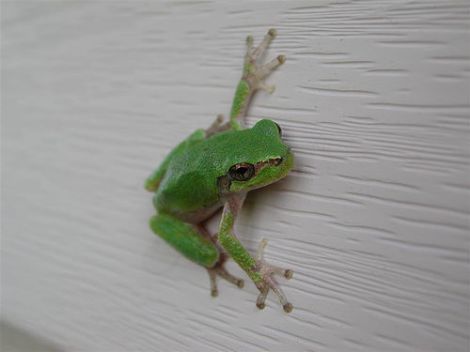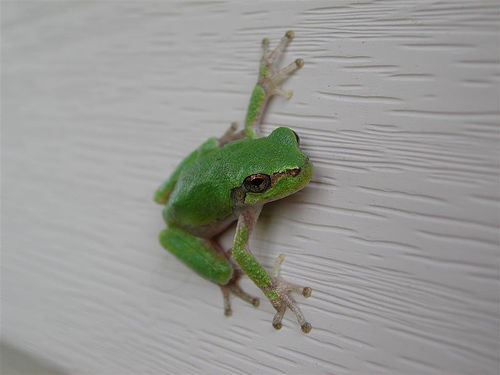There are literally trillions of microbes in and around your body right now — living in your stomach, crowded around your eyeballs, under your fingernails. But it’s all a happy symbiotic relationship. You keep them alive; some of them keep you alive. None of them are trying to kill you.
Parasites, on the other hand, are happy to use your stomach itself as a food source and probably nest in your eyeballs. And with greater temperature shifts due to climate change, it’s possible that you’ll be more susceptible to parasitic invasion.
Parasites, which include tapeworms, the tiny organisms that cause malaria and funguses, may be more nimble at adapting to climatic shifts than the animals they live on since they are smaller and grow more quickly, scientists said.
It’s possible. But you should be most worried if you’re a frog.

If you look like this, be nervous. (Photo by Jonathan Choe.)
In one experiment, frogs kept at a temperature of 25 degrees Celsius (77F) for four weeks suffered far more infections when they were shifted to incubators at 15C (59F) and exposed to the fungus than frogs already used to living at 15C. …
In another test, frogs that were exposed to predictable daily temperature variations between 15 and 25 Celsius, typical of shifts from night to day, were much better at resisting the fungus.
Before you go running off to take a bleach bath (which is also very unhealthy!), note that this is one study on one species of tropical frog. And as science journalist Ed Yong notes:
“Parasites” are so broad that this might as well say “Stuff” RT
@sciam: Parasites May Get Nastier with Climate Swings bit.ly/MRgHKY— Ed Yong(@edyong209) August 13, 2012
In other words: Climate change will almost certainly force organisms of all types to readjust how they interact in their ecosystems. Increased susceptibility to parasites is just one possible example, which one study of tropical frogs doesn’t exactly prove.
And, let’s be honest. There are tiny mites that live in your eyelash follicles, emerging at night to crawl around your face and eat dead skin. If that doesn’t worry you, you should absolutely let this study slide.



